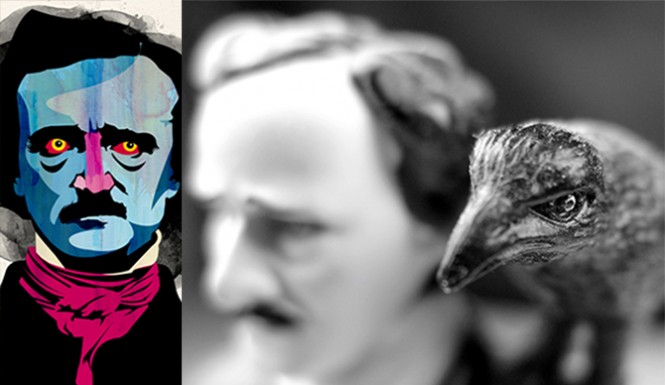Edgar Allan Poe’s Death — His Greatest Unsolved Detective Story of All

The rabies theory came from a a blind diagnosis done in 1996 by a doctor who was shown the case study for a writer from Richmond, Virginia, named E.P. Since he did not know that the initials stood for Edgar Allan Poe, the doctor had no preconceived bias about Poe’s drinking habits and depressive history. Jeff Jerome, curator of the Poe House Museum in Baltimore, told The Chicago Tribune that he accepts this analysis, or at least credits it is as more viable than popular theories that Poe drank himself to death.
“This is the first time since Poe died that a medical person looked at Poe’s death without any preconceived notions. If he knew it was Edgar Allan Poe, he’d think, ‘Oh yeah, drugs, alcohol,’ and that would influence his decision. Dr. Benitez had no agenda.”
Still, Poe’s alcoholism is perhaps the most commonly cited reason for his death. Neither was the afflicted writer shy about documenting his manic depression throughout his life. However, the alcoholism theory doesn’t account for the strange events surrounding Edgar Allan’s death. Five days after he left for Philadelphia to edit a collection of poems, Poe was found in soiled clothing at a Baltimore train station. He passed away after days of delirious fits — screaming out the name “Reynolds” as if recalling his long lost “Lenore.”
Poe’s career vacillated wildly during his short life. When he’d make a major win with something like “The Raven,” it would be followed by time living in squalor. In the time in between, Edgar Allan was known for his acerbic reviews of other literature. Poe was especially hateful of Transcendentalism, arguably the most important American literary movement at the time. In fact, Edgar Allen and Henry Wadsworth Longfellow exchanged heated comments about each other to the press and in their own writing. Poe mockingly called Transcendentalists “Frog Pondians,” according to L.A. Times.
“The fact of the matter is, that the friends of Mr. Longfellow, so far from undertaking to talk about my ‘carping littleness’ in charging Mr. Longfellow with imitation, should have given me credit, under the circumstances, for great moderation in charging him with imitation alone. Had I accused him, in loud terms, of manifest and continuous plagiarism, I should but have echoed the sentiment of every man of letters in the land beyond the immediate influence of the Longfellow coterie.”
If you want to sample a little bit of Edgar Allan Poe, but don’t want to risk terrifying yourself by reading one of his stories, there is an episode of Comedy Central’s Drunk History series that also points out a popular tale from Poe lore regarding his tumultuous relationships with other people in the literary community. (Warning: Gratuitous censored language throughout.)
[H/T Inquisitr]